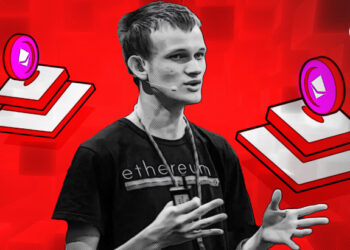
TL;DR
-
Barnabé Monnot has proposed a ‘low barrier to entry’ version of ETH staking, designed to entice anyone/everyone, and help diversify the ETH staking market.
Full Story
Ok, lightning round on ETH staking:
If you want to earn ETH tokens by processing transactions on the Ethereum network, you can:
Stake (aka lock up) your tokens → start processing transactions → earn 5% interest on your total staked ETH per year.
That’s the carrot, now here’s the stick:
If you try and do anything dodgy (like process a bad transaction), others on the network will call you out (and as long as the majority is against you) you’ll lose a chunk of your staked ETH.
Ok, cool. Next, onto the centralization issue…
To process transactions on Ethereum yourself, you need to stake a minimum of 32 ETH ($108k) — say it with us now: “OOOFT!”
So a cottage industry has sprung up, where companies (like Lido) front the initial 32 ETH and let others contribute and earn 5% on however much they want.
Only problem is:
These companies pretty much own the ETH staking market — hell, Lido alone owns an estimated 30%.
A system where bad actors are weeded out by the majority of stake holders policing dodgy transactions is cool and all…
But it breaks down if/when ‘the majority’ is a single entity.
Now comes a new solution from Ethereum researcher, Barnabé Monnot (helluva name!):
We keep everything described up above…but add a ‘staking lite’ version.
Where users can join with lower amounts of initial staked ETH, will be guaranteed to never lose that stake, and will be randomly called upon (lottery style, and much more sporadicly) to process transactions.
This low barrier to entry approach is designed to entice anyone n’ everyone to start staking, and diversify the staking market.
Not bad!





















































































can you get clomid prices cost of clomid no prescription how to get clomiphene no prescription buy generic clomid price generic clomid c10m1d where to buy generic clomid without dr prescription where can i get cheap clomiphene no prescription
I couldn’t resist commenting. Warmly written!
Thanks for sharing. It’s top quality.
buy cheap generic zithromax – oral tindamax 300mg metronidazole 400mg tablet
rybelsus ca – cheap rybelsus periactin 4mg price
motilium us – order tetracycline 500mg for sale cheap flexeril
buy nexium medication – https://anexamate.com/ order esomeprazole 40mg pill
warfarin 5mg sale – coumamide buy cozaar pills for sale
buy generic mobic over the counter – tenderness buy mobic pills
buy amoxil tablets – amoxicillin medication buy amoxicillin without a prescription
order diflucan 200mg generic – https://gpdifluca.com/# buy fluconazole for sale
cenforce 50mg price – https://cenforcers.com/ order cenforce 100mg generic
cialis strength – strong tadafl buying cialis without a prescription
purchase zantac pills – https://aranitidine.com/ order zantac 300mg online
buy cheap viagra blog – https://strongvpls.com/# where can i buy the viagra
This is the tolerant of delivery I turn up helpful. on this site
This website absolutely has all of the bumf and facts I needed about this participant and didn’t know who to ask. https://buyfastonl.com/amoxicillin.html
I’ll certainly bring back to skim more. https://ursxdol.com/doxycycline-antibiotic/
More delight pieces like this would create the интернет better. https://prohnrg.com/
The thoroughness in this piece is noteworthy. stromectol posologie
More posts like this would add up to the online space more useful. https://ondactone.com/product/domperidone/